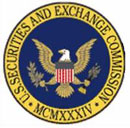|
|
|
Judge Orders T.I. Released on Bond
Breaking Legal News |
2007/10/27 11:52
|
| A federal judge ordered rapper T.I. released on $3 million bond Friday, but he must remain in home confinement while he awaits trial on weapons charges. U.S. Magistrate Judge Alan Baverman said the singer must remain under house arrest at a home in Henry County. He wasn't more specific about the location. T.I. (real name: Clifford Harris) will be monitored 24 hours a day by a private monitoring service that he must pay for. He's restricted to the home except under certain circumstances, including medical appointments and court appearances. He cannot own any firearms and cannot have contact with any witnesses or informants in the case. Noting that T.I has a team of highly qualified attorneys, the judge said: "You shouldn't do anything that will undermine their ability to represent you." Defense lawyer Ed Garland argued that based on the amount of money being put up, there's no reason not to release his client. |
|
|
|
|
|
|
US court lets Liz Taylor keep van Gogh painting
Breaking Legal News |
2007/10/27 11:49
|
| The U.S. Supreme Court allowed actress Elizabeth Taylor to keep a Vincent van Gogh painting on Monday, rejecting an appeal by descendants of a Jewish woman who said she was forced to sell it before fleeing Nazi Germany in 1939. The justices refused to review a U.S. appeals court ruling that dismissed the lawsuit because the descendants waited too long to bring their claims demanding that Taylor return van Gogh's "View of the Asylum and Chapel at Saint-Remy." Van Gogh painted the work in 1889. Less than a year later, he killed himself. Taylor's father purchased the painting on her behalf at a Sotheby's auction in 1963 in London for 92,000 British pounds -- about $257,000 at the time. The painting now is estimated to be worth tens of millions of dollars. Four South African and Canadian descendants of Margarete Mauthner, a Jewish woman who fled Germany in 1939 for South Africa, sued Taylor in 2004 in federal court in California. The lawsuit claimed the Nazis forced Mauthner to sell the painting under duress before fleeing Germany and that it should be returned to her descendants under the 1998 U.S. Holocaust Victims Redress Act. Taylor said the record showed the painting was sold through two Jewish art dealers to a Jewish art collector, and that there was no evidence of any Nazi coercion or participation in the transactions. A U.S. appeals court upheld the dismissal of the lawsuit. It ruled the descendants had waited to long to bring the lawsuit and the claims under state law were barred by the statute of limitations. It also ruled that the 1998 federal law refers to the United States and other governments working to return artworks confiscated during the Nazi rule to their rightful owners, but does not give individuals the right to sue private art owners. Attorneys for the descendants appealed to the Supreme Court. "The issue is of pressing importance, given the advanced age of Holocaust survivors and their heirs," they said. "There is a strong recent trend toward permitting claimants of Holocaust-era artwork to seek to recover them, regardless of the statute of limitations," the attorneys said in asking the Supreme Court to hear the case. Taylor's attorneys opposed the appeal and said the appeals court's judgment was correct. They said the policy arguments by the descendants over the 1998 law should be directed to the U.S. Congress, not the Supreme Court. In siding with Taylor, the high court turned down the appeal without any comment or recorded dissent. |
|
|
|
|
|
|
Nominee: 'You Need Me in Traffic Court'
Breaking Legal News |
2007/10/27 11:49
|
| A pastor running for judge told potential donors they should give him $20 because "you're all going to need me in Traffic Court." Willie Singletary, who made headlines earlier this year for having his license suspended and owing more than $11,000 in unpaid traffic tickets, made the comment to a crowd of fellow motorcycle enthusiasts in April. A video of it was posted on the video-sharing Web site YouTube. "I'm telling you all just like it is. I need some money," the Democratic nominee tells the crowd. "I got some stuff that I got to do, but if you all can give me $20. You're all going to need me in Traffic Court, am I right about that?" Singletary, 26, is a pastor from Southwest Philadelphia. He said he was only assuring his supporters that he would "give them a fair trial in the courtroom." Singletary's attorney, Richard W. Hoy, said: "He hasn't done anything wrong. Everyone needs a friend in Traffic Court. You need a friend in Traffic Court. He was just promising people they would get a fair trial." The Traffic Court oversees moving violations issued in Philadelphia and its judges earn nearly $80,000 per year. The judges need not be lawyers, but each must complete a course and pass an exam. Singletary is seeking the job at a time when he is not allowed to drive. His license is suspended through at least 2011 and, at the time he won the Democratic primary, he owed the court $11,427.50 for not paying 55 violations including reckless driving, driving without a license, careless driving without registration, and driving without insurance. Singletary's father paid the fines soon after the May primary, canceling a bench warrant that had been issued for his son. Singletary's campaign reports show that he had raised $5,239 for the primary election. |
|
|
|
|
|
|
SEC sees "rampant" insider trading on Wall Street
Breaking Legal News |
2007/10/26 09:10
|
| A senior Securities and Exchange Commission official said on Thursday insider trading appeared to be "rampant" among Wall Street professionals and the agency has formed a working group to focus on it. "I believe we're going to see more insider trading cases," Linda Chatman Thomsen, the SEC's enforcement director, told reporters on the sidelines of a securities fraud conference. "I am disappointed in the number of cases we are seeing by people who make an abundant livelihood in the market that they are sort of abusing by insider trading," Thomsen said, referring to cases already brought against professionals this year. Insider trading "appears to be rampant" among Wall Street securities professionals, she added. Alice Fisher, assistant attorney general with the Justice Department's criminal division, echoed Thomsen's sentiment and said: "The number of insider trading cases don't seem to be going away." In the past year, SEC enforcement lawyers have brought increasing numbers of insider trading lawsuits and settlements. Recent high-profile cases include charges against a husband and wife in Hong Kong for trades in Dow Jones & Co Inc shares ahead of News Corp's $5 billion takeover bid, and guilty pleas from three former Countrywide Financial Corp executives for trading company shares ahead of a disappointing profit report. Also, in March U.S. prosecutors charged 13 people, including employees at top Wall Street banks UBS, Morgan Stanley and Bear Stearns Cos Inc in what they called one of the most pervasive trading rings since the 1980s. The SEC also brought civil charges against 11 people, as well as against three hedge funds. Insider trading involving hedge funds is the focus of one of the four internal working groups the SEC has set up to tap expertise and coordinate efforts throughout the agency. The $1.8 trillion hedge fund industry guards its secrecy and complex trading strategies. |
|
|
|
|
|
|
Ex-City Worker Plea in 9/11 Funds Theft
Breaking Legal News |
2007/10/26 09:05
|
| A former employee at the city medical examiner's office pleaded guilty to helping embezzle millions of dollars, some of which was intended to help identify victims of the Sept. 11 terrorist attack, authorities said Wednesday. Rosa Abreu pleaded guilty Tuesday in federal court in Manhattan to charges of embezzlement, money laundering and conspiracy. She faces a maximum 75 years in prison when she is sentenced on Jan. 23, federal prosecutors said. Abreu was the director of records at the medical examiner's office. Her co-defendant and former boss, Natarajan Venkataran, was scheduled to go to trial on Nov. 26. Abreu was Venkataran's assistant. Abreu was responsible for supporting computer systems used to track and identify forensic evidence, including DNA, from crime scenes, prosecutors said. After the Sept. 11 attack, the office needed more computer services to identify victims through evidence collected at ground zero. The two, charged in 2005, steered more than $13 million in computer service contracts and purchase orders between 1999 and 2004 in exchange for cash payments to companies that did little or no work, according to U.S. Attorney Michael Garcia. The two also directed millions of dollars to three shell companies they created, withdrew cash and made payments to personal accounts and transferred money overseas, prosecutors said. Many of the office's Sept. 11-related expenses were reimbursed by the Federal Emergency Management Agency, which forwarded more than $46 million to the office in 2002 and 2003, federal authorities said. |
|
|
|
|
|
|
Court grants reprieve to Alabama death-row inmate
Breaking Legal News |
2007/10/25 10:12
|
| A U.S. court granted a stay of execution to a convicted killer set to be put to death in Alabama on Thursday, the latest such move since the U.S. Supreme Court agreed to hear a challenge to lethal injection. The U.S. 11th Circuit Court of Appeals on Wednesday overturned a decision by a lower court to proceed with the execution of Daniel Lee Siebert, 53. "We stay his execution pending the Supreme Court's resolution of Baze vs Rees," the court said, referring to the high court's decision last month to review whether lethal injections cause unacceptable pain. Siebert's lawyers had argued that the drug combination used for lethal injection might interact with his medication for pancreatic cancer and hepatitis C and cause undue pain. Siebert was convicted of the 1986 strangling deaths of Sherri Weathers, her two young sons and Weathers' friend Linda Jarman. Also convicted of murdering another woman, Siebert claims to have murdered others in various U.S. states. Bryan Stevenson, director of the Equal Justice Initiative, which helped bring the suit on Siebert's behalf, said: "It would grossly inappropriate to carry out executions that may soon be declared unconstitutional by the Supreme Court." Louella Kelley, Jarman's sister, lamented the ruling. "He's beaten the system again," she said in an interview. "He got himself educated in law while he's been in prison and his lawyers are very, very good. But all along he's been smarter than our justice system." Alabama Gov. Bob Riley had said on Monday the execution would go ahead. It would have been the first since the beginning of a "creeping moratorium" that has halted executions in at least six U.S. states. |
|
|
|
|
|
|
Court Denies Ex-Gov. Ryan a New Hearing
Breaking Legal News |
2007/10/25 07:05
|
| A federal appeals court refused Thursday to grant former Gov. George Ryan a fresh hearing on his racketeering and fraud conviction. "We agree that the evidence of the defendant's guilt was overwhelming," the 7th U.S. Circuit Court of Appeals said in a 15-page opinion. Ryan already had lost his bid to have his April 2006 conviction reversed by a three-judge panel of the appeals court. But he had sought to have the case considered again by all the sitting appeals judges. In a 6-3 split decision, the court refused to grant Ryan or co-defendant Larry Warner the so-called "en banc" hearing. Ryan, a Republican who gained national prominence as governor for his opposition to the death penalty, was sentenced to 6 1/2 years in federal prison after his conviction. But the sentence had been put on hold and he remained free while the request for another hearing was pending. It was not clear from Thursday's ruling whether Ryan would now be required to report to prison. Ryan did not return a message left on his cell phone, and the office of his attorney James R. Thompson said it had had no immediate comment. Thompson, himself a former governor, had said earlier that the case would be fought to the U.S. Supreme Court if necessary. Ryan was convicted of taking payoffs from political insiders in exchange for state business while he was secretary of state from 1991 to 1999 and governor from 1999 to 2003. In 2000, Ryan declared a moratorium on executions after 13 Illinois death row inmates were found to have been wrongly convicted. Then, days before he left office, he emptied out the state's death row, commuting the sentences of all 167 inmates to life in prison. But the federal investigation of the secretary of state's office under Ryan eventually ensnared him. It had been speeded up after six children died in 1994 in a fiery accident involving a truck driver who got his license illegally. Authorities eventually found that unqualified truck drivers had obtained licenses through bribes. Federal prosecutors began convicting his employees and friends, moving closer and closer to Ryan. Thursday's order from the six majority judges was just one paragraph long and gave no explanation for their refusal to hold a hearing. Ryan's request for a new trial cited problems that had surfaced during the jury's lengthy deliberations, including the dismissal of a juror who had allegedly snored and another who failed to disclose her arrest record. His lawyers argued that the questioning of jury panel members about the problems had intimidated them and affected their impartiality. Prosecutors scoffed at the notion. |
|
|
|
|
|
|
Class action or a representative action is a form of lawsuit in which a large group of people collectively bring a claim to court and/or in which a class of defendants is being sued. This form of collective lawsuit originated in the United States and is still predominantly a U.S. phenomenon, at least the U.S. variant of it. In the United States federal courts, class actions are governed by Federal Rules of Civil Procedure Rule. Since 1938, many states have adopted rules similar to the FRCP. However, some states like California have civil procedure systems which deviate significantly from the federal rules; the California Codes provide for four separate types of class actions. As a result, there are two separate treatises devoted solely to the complex topic of California class actions. Some states, such as Virginia, do not provide for any class actions, while others, such as New York, limit the types of claims that may be brought as class actions. They can construct your law firm a brand new website and help you redesign your existing law firm site to secure your place in the internet. |
Law Firm Directory
|
|









